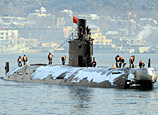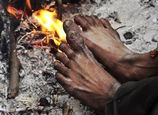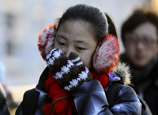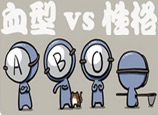
Developing countries, led by China and Brazil, will see greater progress in their economic recoveries, as high-income countries continue to struggle in the wake of the global financial crisis of several years ago, according to a World Bank report.
According to the bank's latest Global Economic Prospects report published on Wednesday, its growth prospect for the global economy in 2013 was slashed to 2.4 percent from a June 2012 estimate of 3 percent.
But China's growth will pick up from an estimated 7.9 percent in 2012 to 8.4 percent this year, said Kaushik Basu, its chief economist at a news briefing in Washington on Tuesday. The 2013 prediction was lowered from a previous 8.6 percent.
"China is growing at a phenomenal rate... but you can't grow at 10 percent for more than a couple of decades," Basu said.
He Fan, deputy director of the Institute of World Economics and Politics at the Chinese Academy of Social Sciences, said the global economic climate will remain challenging for China in the long term.
He expected that the United States and Japan will fare better this year, but the continuing crisis in the European Union, China's largest trading partner, will continue to undermine the global recovery.
In addition, "a major risk lies in the accommodative monetary policies following the quantitative easing measures adopted by the United States and economic stimulus package by Japan, which will lead to further appreciation of the renminbi this year", He said at the Boao Forum for Asia SME (small and medium-sized enterprise) Conference 2013.
The Chinese economy grew 7.4 percent during the third quarter of 2012, the seventh consecutive period of slower growth.
The Institute of Economic Research at Renmin University of China predicted that the fourth-quarter figures will likely have turned that around due to greater domestic consumption and infrastructure investment.
Justin Yifu Lin, former World Bank chief economist and senior vice-president, was more optimistic, predicting China's growth will be 8.5 percent this year, and maintain a similar rate over the next five to 10 years.
"As a developing country and a transitional economy, China certainly faces many challenges to tap into this potential," Lin said at a business forum on the Chinese economy at the New York Stock Exchange.
CASS' He said the Chinese government now attaches more importance to stability than it does to a rapid pace of economic expansion.
"In the long term, we could never again see an accommodative global environment as it was during the 1990s," he said, adding that while external conditions deteriorate, growth on foreign trade will shift to urbanization.
"Globalization lifted productivity via a detailed labor division, and urbanization can do the very same," he said.
"For example, in large cities, a simple hairdressing industry can be divided into specialties for women, kids, and even dogs... Every market segment is large enough for an entire industry. Urbanization can be a major source of innovation," he added.
"China's urbanization will be the biggest opportunity for the global economy in the first half of the 21st century," He said, citing a quote from Josef Stiglitz, a Nobel laureate in economics.
But the transition won't be easy "in the urbanization process. There won't be a Wal-Mart categorizing orders, or a UPS delivering goods. We are on our own".
He suggested infrastructure should be a priority in urbanization, and such infrastructure involves a better legal environment and marketing network, rather than building airports and railways.
"It will not only be a reform of the economy, but a reform of the management system as well," he said. Such measures include less approval procedures, more sectors open for private investments, and innovative financing channels targeting small and medium-sized enterprises, he added.
Lin, the former World Bank official, said that among the challenges China faces are income disparity and corruption, which combined could produce social tension, and the need to exert discipline in tackling these problems.
But the new Chinese leadership understands these challenges, Lin said.
















 'Sister House' case urges efforts in combating corruption in affordable housing
'Sister House' case urges efforts in combating corruption in affordable housing


![]()
